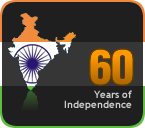
Everyone knows great people. Those great people don’t know all who know them. But there are a few of these great persons who remember everyone who is introduced to them and make it a point to remember their names and other details.
Semmangudi Srinivasa Iyer, whose centenary falls this week, was one such person. Everyone interested in Carnatic music knows him well, his reputation as a great singer and a lifetime devoted to music and music alone.
My father and Bhagavathar were well known to each other ever since Semmangudi Srinivasa Iyer became the asthaana vidwan of Travancore state, and the Principal of Swathi Thirunal Music Academy. Our home in Trivandrum was next to the Academy. In fact, this Music Academy was being conducted in the house which my father bought in 1941. Since then the Academy shifted to the present building.

Babuji was introduced to the Bhagavathar by my father during our wedding. Babuji, a great fan of the Bhagavathar, was really thrilled by this. Babuji use to walk six to eight miles to and fro to listen to the kutcheris of great musicians in his younger days. Babuji was influenced by two friends who were truly interested in music, and it was with these friends that he used to go for these concerts. In those days, most of these concerts were held at functions like weddings. The name of the Bhagavathar was the criterion by which the grandness of the wedding was assessed. Musicians like Semangudi, Madurai Mani Iyer and G. N. Balasubramaniam were the favourite ones.
In 1948, Babuji was coming to Madras from Delhi by the Grand Trunk Express. In Nagpur station, at the middle of the night, a few people entered the compartment Babuji was in. Once they settled down Babuji recognized them as Semmangudi Srinivasa Iyer and his accompanying artistes. When Babuji introduced himself after saluting the Bhagavathar, the Bhagavathar said, “Oh yes, I remember you. You are Judge saar’s kadaikutty Mapillai (youngest son-in-law). And till the train reached Madras, Babuji was treated like Bhagavathar’s own son-in-law; not being allowed to spend any money on food, but sharing with him all that they had brought. Babuji was really touched by this gesture.
Whenever Bhagavathar came to Delhi, we never missed any of his concerts. And we used to meet him backstage, where he treated us as one of his family. It was at on e of these meetings the Bhagavathar told us that he had met my father only the previous week in Trivandrum, and as usual when they met, my father was profusely apologetic for not wearing his ‘poonal’. My father never believed in God, leave alone all the rituals that followed. But his greatness was he allowed my mother to have her own way in all the religious rites and rituals and took part in them whenever he was called upon to do so. The poonal would adorn his person at such times. And also on amavasai day to perform the ‘tharpanam’ and on those days he had to do the ‘sraddham’ for his ancestors.
After retirement, one of my father’s daily routines was to walk up to the gate at about 4 pm – the time the Music Academy closed for the day, to meet the Bhagavathar and exchange titbits of gossip. The Bhagavathar used to tease my father, who was 20 years his senior (my father’s 120th anniversary fell on July 16) by saying “Hey Brahmin, why don’t you wear your ‘poonal’?” At home, my father was always bare-chested, as was the custom in those days. On days he remembered, my father would call my younger brother to bring the poonal to the gate saying, “Here comes the Bhagavathar, and if he sees me without it, he will take my life out.”
Bhagavathar had great respect for my father’s judgement in music. People used to come to my father with youngsters good at singing and playing instruments, with requests to get in a word of recommendation to the Bhagavathar. My father always used to help them, and one or two of these, recommended by my father and accepted by the Bhagavathar became world famous artistes in their later life.
The only thing that my father objected to was the Bhagavathar’s habit of claiming one rupee for each autograph he signed. He was collecting for some charitable purpose or committee, I don’t remember which. When my daughter Raji got that autograph after paying that rupee, she had a tough time facing my father and giving an explanation.
 Click on picture to enlarge
Click on picture to enlargeThe last time we met the Bhagavathar was at Malai Mandir in New Delhi in early 1980. when he saw me he asked me about my welfare, and surprised me by saying, “Come on, child, tell me, Do you recognize me, you know my name?” as if I was a child of six or seven, whereas at that time I was above 50. He was really happy when I did namaskaram to him. He spoke to me about my father, his ideas and ideals. I was really touched by his affection, not only for my father, but also for his children.
Semmangudi photograph: Courtesy Internet










